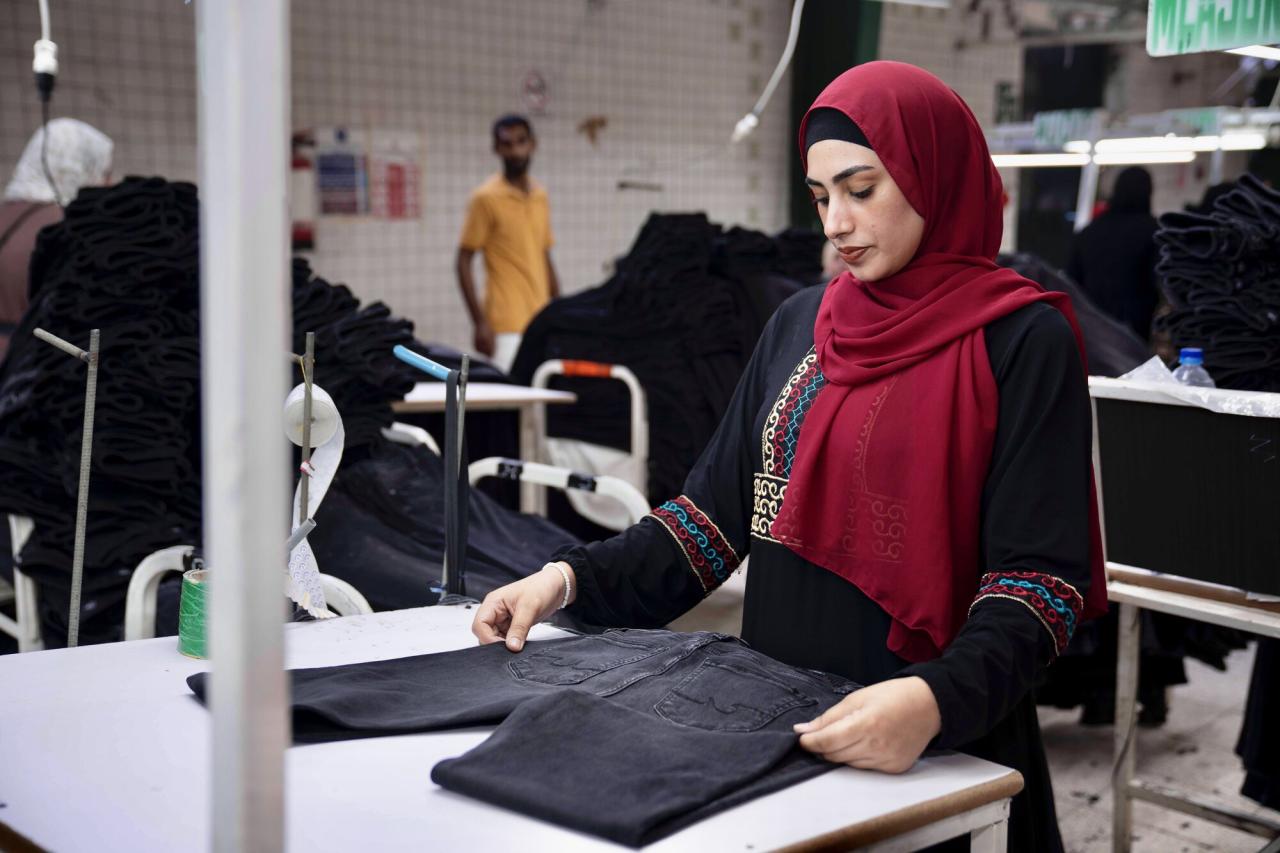Mastercard: Wage Digitalization: A Path to Accelerating Financial Health for Garment Workers
Rhea-AI Summary
Mastercard (MA) is partnering with RISE to promote wage digitalization in the garment sector, aiming to improve financial health for workers, particularly women. The initiative has shown positive outcomes in Cambodia, Egypt, and Bangladesh, with increased account ownership, savings rates, and financial confidence among workers. Key benefits include:
- Improved financial management and decision-making for workers
- Increased efficiency and compliance for employers
- Creation of new market segments for financial service providers
- Contribution to broader economic stability and growth
The Mastercard Center for Inclusive Growth has become the anchor partner for RISE's Financial Health focus area, with plans to expand to Indonesia and Guatemala in 2024. The collaboration aims to drive global change through partnerships across sectors, focusing on improving financial health and building more inclusive economies.
Positive
- Increased account ownership among women workers (62% increase in Cambodia)
- Improved savings rates (84% of women in Cambodia reported saving regularly, up 38%)
- Enhanced financial confidence (80% of women in Cambodia confident in managing financial emergencies)
- Significant payroll processing time reduction for factories (42% in Egypt, 59% in Bangladesh, 84% in Cambodia)
- Creation of new market segment for financial service providers (8-13 transactions per month per worker in Bangladesh)
- Expansion of the program to Indonesia and Guatemala in 2024
Negative
- None.
News Market Reaction
On the day this news was published, MA gained 0.96%, reflecting a mild positive market reaction.
Data tracked by StockTitan Argus on the day of publication.
NORTHAMPTON, MA / ACCESSWIRE / July 22, 2024 / Mastercard
Mastercard
By Payal Dalal and Christine Svarer
Across the garment sector, women take on demanding roles with a dual purpose: to sustain their families today and lay the groundwork for a secure tomorrow. However, many are paid cash wages and lack access to financial services, limiting their ability to save and putting them at risk for theft. They often have less control over their earnings, frequently handing over some or all of their income to a family member.
For employers, cash wages are inefficient because counting and distribution are time-consuming processes. Transportation and holding cash on premises expose them to a risk of theft.
Responsible wage digitalization, along with gender responsive financial capability training, holds the potential to address these challenges and contribute to social and economic progress. For millions of garment workers, it promises transparency in pay, access to formal financial accounts, a secure place to save and with the right support, increased economic agency and empowerment. There is also an opportunity to move beyond financial inclusion to improve financial health with programs and products that enable garment workers to better manage daily expenses, handle emergencies, stay on track to reach future goals, and feel confident and in control of their money.
Investing in women's financial health can have a multiplier effect. Research has shown that when women have greater control over household finances, they tend to invest in essential needs like food security, health and education, leading to better outcomes for families and communities. For businesses, wage digitalization can enhance efficiency and demonstrate wage compliance in factories, create new market segments for financial service providers, and contribute to broader economic stability and growth. This shift can progress countries toward achieving the UN's Sustainable Development Goals, fostering a more inclusive and resilient economy.
[Following wage digitization], I know when my salary is coming in. I can pay utility bills, I can easily transfer money to my parents, I can make a loan payment through my account, and I can withdraw and deposit cash whenever I want.
Vorn
Garment worker in Cambodia
Transitioning from cash to digital wages has shown positive outcomes when implemented with a gender-intentional approach, with both women and men garment workers reporting improved financial health and wellbeing. RISE Financial Health training strengthened participants' financial knowledge and skills, built their trust in financial services and increased their control over household financial decisions. This enabled them to make more informed choices about how wages are spent and saved and helped them build more secure futures for themselves and their families. As a result:
In Cambodia, at the end of the program,
99% of women surveyed were paid into accounts (up62% -points) and84% of women reported saving regularly (up38% -points), linked to having a safe place to keep their savings. This led to80% of women reporting confidence in their ability to manage a financial emergency within the next two years (up25% -points).In Egypt,
73% of women workers reported that having a bank account helped them during the COVID-19 crisis because it allowed them to manage their wages more easily.In Bangladesh, there was a
19% -point increase in the share of women reporting more involvement in household decision-making on how to use their earnings. They now discuss how to use their earning with family members.
Wage digitalization also yielded significant payroll and production savings. Factories reported a reduction in the time spent processing, counting, disbursing and auditing payroll:
With the right support, workers also became active users of financial products and services, creating an active new market segment for financial service providers. For example, in Bangladesh, following participation in RISE Financial Health, workers conducted 8-13 transactions a month, including airtime top up and sending remittances.
In our new working paper ‘Improving financial health and well-being in global supply chains through wage digitalization', we share insights on how responsible wage digitization, including financial capability training for workers, leads to improvements in financial health. We also outline concrete opportunities for financial health practitioners and policymakers to collaborate with the private sector to create impact at scale with wage digitalization.
Partnerships will be crucial in this effort, which is why the Mastercard Center for Inclusive Growth has become the anchor partner for RISE's Financial Health focus area, doubling down on its support for women workers in global garment supply chains.
Together, we will seek to replicate and expand the benefits of responsible wage digitalization to reach more women workers and improve their financial health, including expanding the program to two new markets in 2024, Indonesia and Guatemala, and will continue to share learnings and insights with key stakeholders including financial health practitioners and policymakers.
We recognize that we cannot tackle the complex challenge of expanding global financial health and well-being alone. Collaboration across sectors is essential. The garment industry, with its large women workforce, and the financial services industry, with a foothold in the digital economy, are important partners for policymakers and practitioners to drive global change. Working together, we can accelerate progress and create lasting impact for workers and their families and build more inclusive and resilient economies.
Payal Dalal is executive vice president, global programs, Mastercard Center for Inclusive Growth, and Christine Svarer is executive director, RISE (Reimagining Industry to Support Equality).
Feature photo credit: RISECDS - M.Moawad
Originally published by Mastercard
Follow the Mastercard Center for Inclusive Growth's journey to advance equitable and sustainable economic growth and financial inclusion around the world by following us on LinkedIn and Instagram.

View additional multimedia and more ESG storytelling from Mastercard on 3blmedia.com.
Contact Info:
Spokesperson: Mastercard
Website: https://www.3blmedia.com/profiles/mastercard
Email: info@3blmedia.com
SOURCE: Mastercard
View the original press release on accesswire.com









